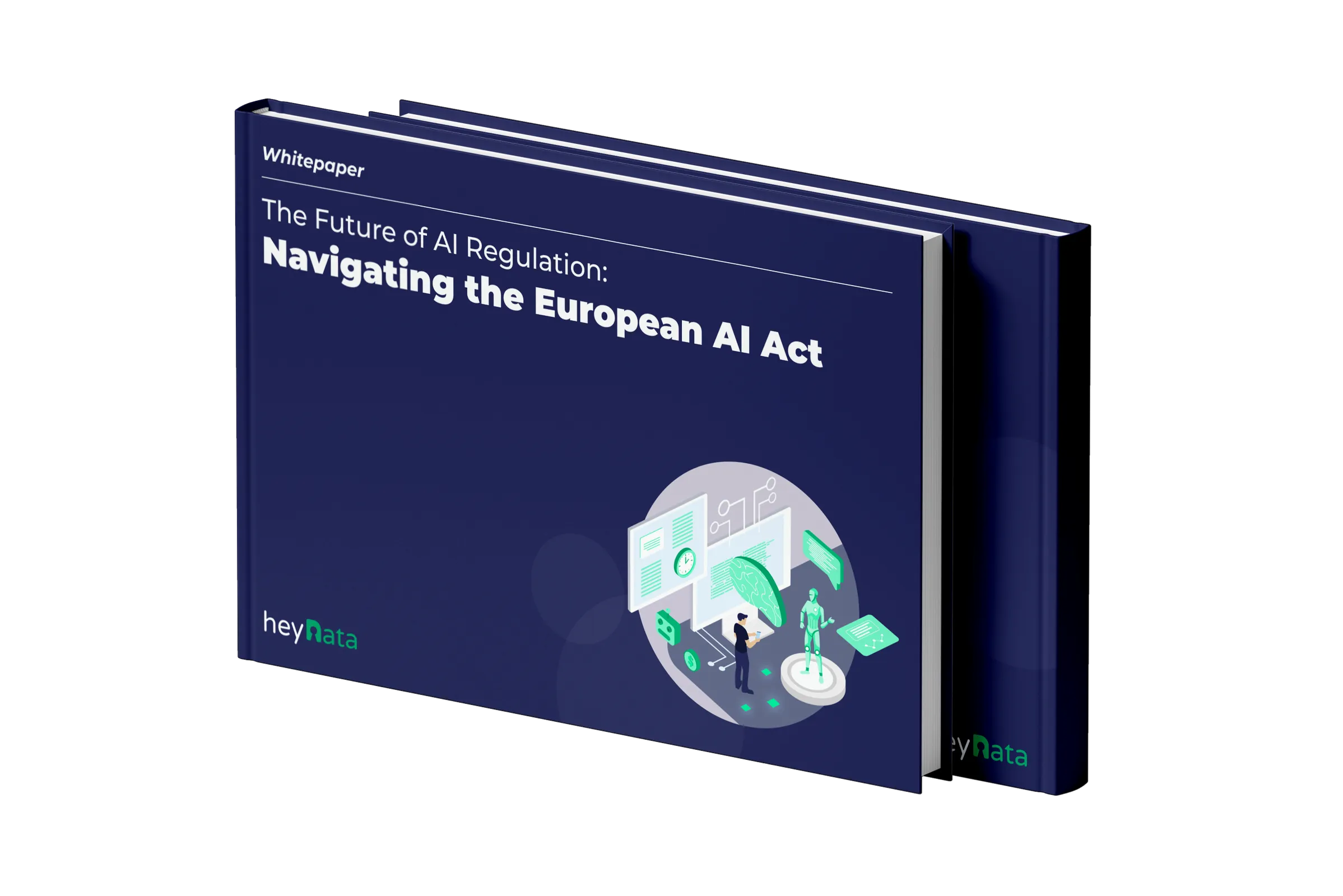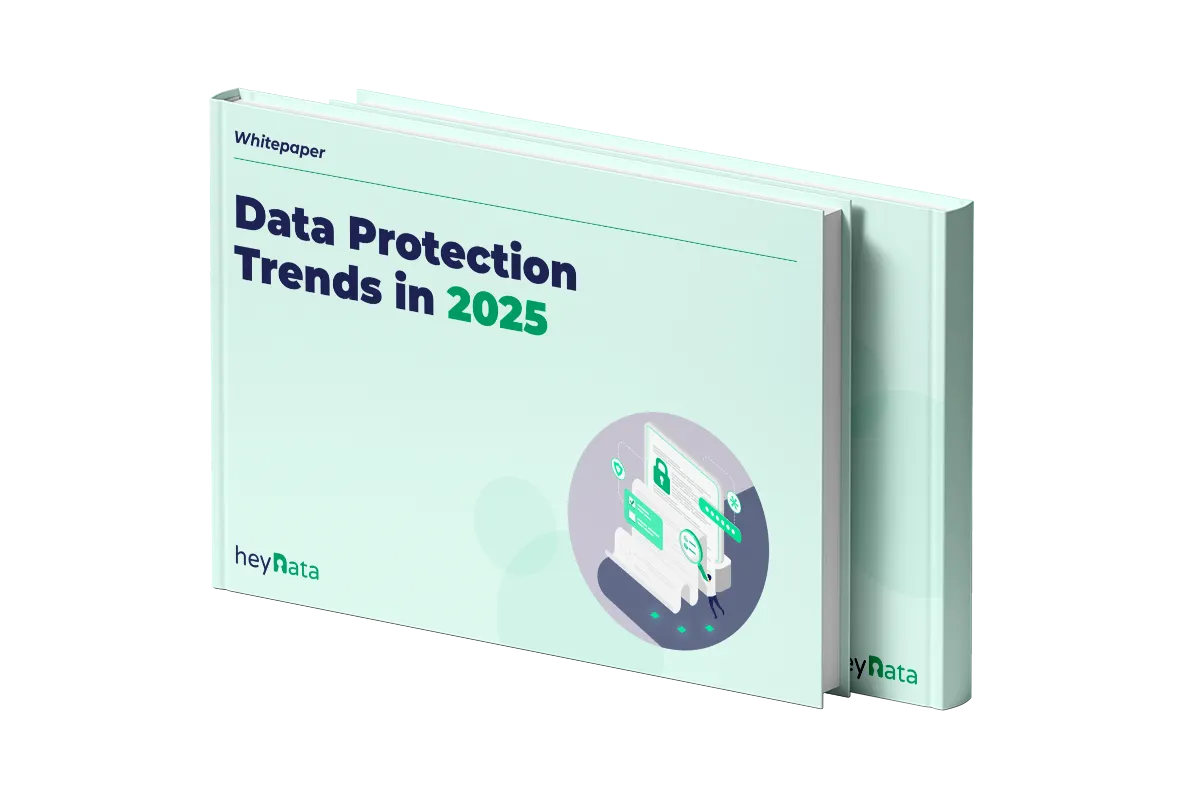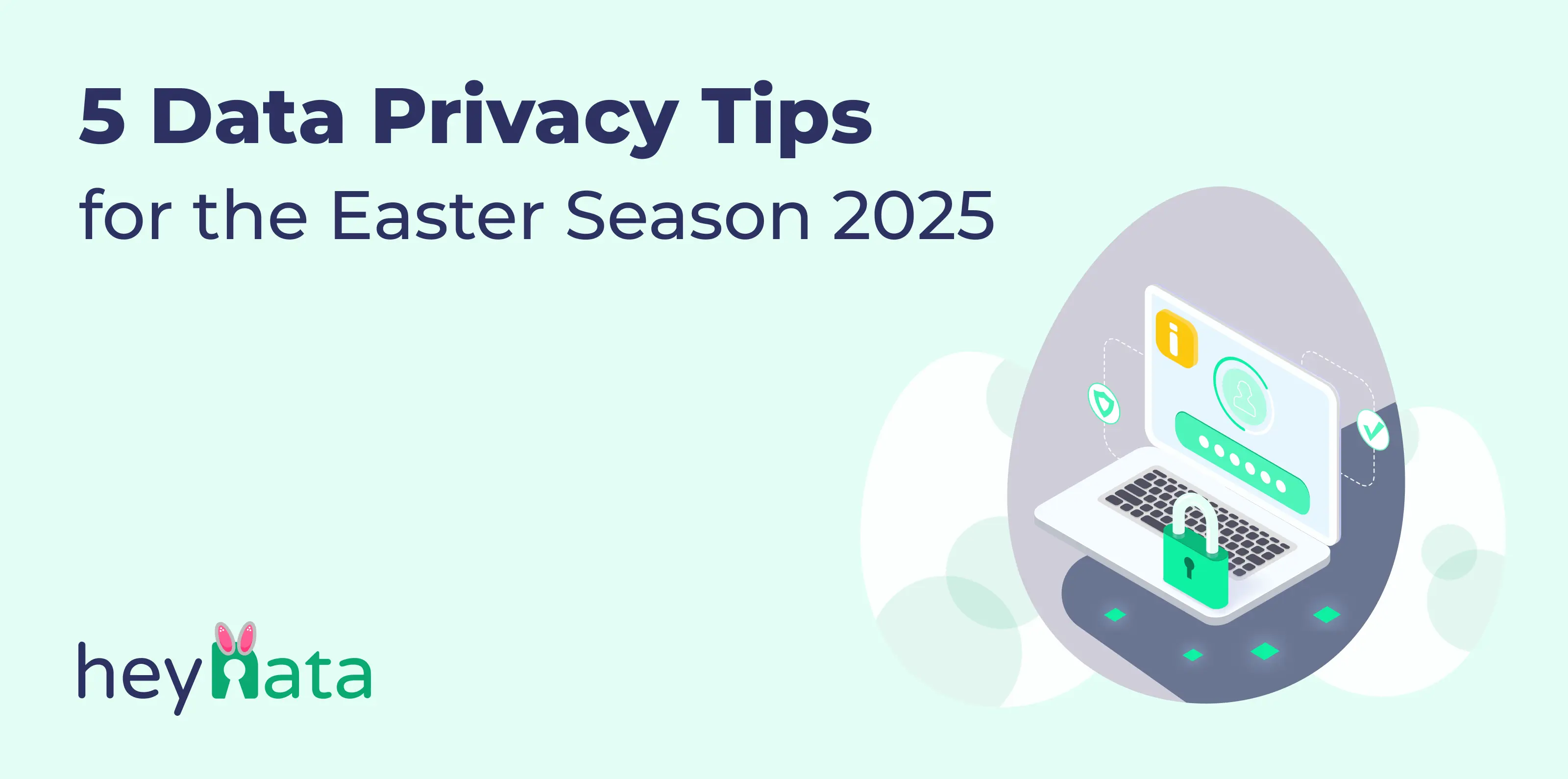
Want to understand how the EU AI Act will affect your data protection strategy in 2025?

What’s next in data protection? Find out in our 2025 whitepaper

Hop Into Data Privacy: Easter Tips to Future-Proof Your Company for 2025
Data protection remains a central theme for businesses in Germany in 2025. With new regulations such as the EU AI Act and increasing consumer expectations for transparency, preparing for the requirements is more important than ever. These preparations are not only about compliance; they are about building trust with your customers and ensuring long-term business success. Here are updated tips on making your company fit for data protection – perfect for Easter time to optimize compliance.
Table of Contents:
1. Appointing a Data Protection Officer: Expertise for the Future
A data protection officer (DPO) has a central role in ensuring compliance with data protection regulations. In Germany, appointing a DPO is often legally required, particularly if your organization processes large amounts of personal data or engages in specific types of data processing activities. For 2025, however, companies should ensure that their data protection officers possess expertise in new and emerging areas such as AI, machine learning, and automated data processing.
The DPO acts as the primary point of contact for data protection matters within your organization. They are responsible for:
- Monitoring compliance with the GDPR and other data protection laws.
- Advising the organization on its data protection obligations.
- Providing training to employees on data protection matters.
- Cooperating with the data protection authority.
- Serving as the contact point for data subjects who wish to exercise their rights.
If your company does not yet have a data protection officer, now is the time to appoint one – either internally or externally. An internal DPO should have a strong understanding of data protection law and the organization's data processing activities. An external DPO can bring a wealth of experience and expertise from working with multiple organizations. Platforms like heyData continue to offer external data protection officers who not only provide legal advice but also assist in the integration of AI-powered compliance solutions.
Why a DPO is Crucial:
- Expert Guidance: A DPO provides expert guidance on complex data protection issues.
- Risk Mitigation: They help identify and mitigate data protection risks.
- Compliance: They ensure your organization complies with data protection laws.
- Trust: A DPO demonstrates your commitment to data protection, and building trust with customers and stakeholders.

Want to understand how the EU AI Act will affect your data protection strategy in 2025?
2. Reviewing and Updating Data Processing Agreements: A Must for 2025
With the increasing use of third-party providers and AI tools, the management of data processing agreements (DPAs) is becoming increasingly complex. A DPA is a legally binding contract between a data controller (your organization) and a data processor (a third party that processes personal data on your behalf). For 2025, you should ensure that your contracts are not only GDPR-compliant but also take into account new requirements such as data minimization, purpose limitation, and transparency.
Your DPA should clearly define:
- The subject matter and duration of the processing.
- The nature and purpose of the processing.
- The types of personal data being processed.
- The categories of data subjects.
- The obligations and rights of the data controller.
Tools like heyData can help you review and update your existing contracts. It is now particularly important to use a central platform that monitors all third-party risks and integrates compliance monitoring.
Key Considerations for DPAs in 2025:
- AI and Automated Processing: Ensure your DPAs address the specific risks and challenges associated with AI and automated processing.
- Data Localization: Consider data localization requirements, particularly if your data processor is located outside of the EU.
- Security Measures: Ensure your DPAs specify the technical and organizational security measures that the data processor must implement to protect personal data.
- Audit Rights: Include audit rights in your DPAs to verify that the data processor is complying with its obligations.
Pro Tip: With new technologies like AI reshaping how data is processed, staying ahead of regulatory changes is key.

What’s next in data protection? Find out in our 2025 whitepaper
3. Creating a GDPR-Compliant Privacy Policy: Transparency is Key
The GDPR remains a cornerstone of data protection. But in 2025, new challenges are added: consumers expect more control over their data and transparent information about how AI processes their data. A privacy policy is a public-facing document that explains how your organization collects, uses, and protects personal data. It is essential to comply with the GDPR's transparency requirements.
A modern privacy policy should be formulated and also cover aspects such as AI data processing. Your privacy policy should be:
- Easy to Understand: Written in plain language that is easy for the average person to understand.
- Comprehensive: Cover all aspects of your data processing activities.
- Up-to-date: Regularly reviewed and updated to reflect changes in your data processing practices.
- Accessible: Easily accessible on your website and other relevant platforms.
With platforms like heyData, you can not only optimize documentation but also conduct training for employees and obtain digital signatures for policies.
Essential Elements of a GDPR-Compliant Privacy Policy:
- Who you are: Your organization's name and contact details.
- What personal data you collect: The types of personal data you collect.
- How you collect personal data: How you collect personal data (e.g., through website forms, cookies, etc.).
- Why you collect personal data: The purposes for which you collect personal data.
- Who you share personal data with: The categories of recipients of personal data.
- How long you keep personal data: The retention periods for personal data.
- Data subject rights: Information about data subjects' rights under the GDPR (e.g., the right to access, rectification, erasure, etc.).
- How to exercise data subject rights: Instructions on how data subjects can exercise their rights.
4. Protection Against Data Breaches: Strengthening Your Defenses
Technical and organizational measures (TOM) are still essential – but in 2025, it go one step further: AI can be used to identify security risks early and automate incident response processes. A data breach is a security incident that results in the accidental or unlawful destruction, loss, alteration, unauthorized disclosure of, or access to personal data. Data breaches can have serious consequences for your organization, including:
- Financial losses: Fines, compensation claims, and legal fees.
- Reputational damage: Loss of customer trust and damage to your brand.
- Operational disruption: Disruption to your business operations.
Invest in tools with AI-powered threat detection and ensure that your incident response team is up to date. An Incident-Response-Team should consist of:
- HR
- IT
- Legal Department
- PR
heyData offers solutions with integrated encryption, access controls, and automated notification in the event of an incident.
Key Steps to Protect Against Data Breaches:
- Implement Strong Security Measures: Implement technical and organizational security measures to protect personal data.
- Train Employees: Train employees on data security best practices.
- Monitor Your Systems: Monitor your systems for suspicious activity.
- Develop an Incident Response Plan: Develop an incident response plan to respond to data breaches effectively.
- Regularly Test Your Systems: Regularly test your systems to identify vulnerabilities.
5. Regular Training and Sensitization of Employees: A Continuous Process
Employees remain key to compliance with data protection guidelines. But in 2025, training should not only cover GDPR but also new topics such as dealing with AI data processing and third-party risks. Employees are often the first line of defense against data breaches and other data protection incidents. It is essential to provide them with regular training on data protection best practices.
Training should cover:
- The GDPR and other data protection laws.
- Your organization's data protection policies and procedures.
- How to identify and report data breaches.
- How to handle personal data securely.
- The importance of data protection.
The heyData Academy offers flexible training options on these topics. After completion, employees receive certificates as proof of their knowledge – a valuable investment in the future of your company.
Benefits of Data Protection Training:
- Increased Awareness: Training increases employees' awareness of data protection risks.
- Improved Compliance: It helps ensure that employees comply with data protection policies and procedures.
- Reduced Risk: It reduces the risk of data breaches and other data protection incidents.
- Enhanced Reputation: It enhances your organization's reputation as a trustworthy and responsible data controller.
Conclusion
2025 brings new challenges in the area of data protection – from more complex regulations to higher consumer expectations for transparency. Use the Easter season to prepare your company for these requirements:
- Appoint a competent data protection officer with expertise in emerging technologies like AI.
- Review and update your data processing agreements to reflect the latest legal requirements and technological advancements.
- Update your privacy policy to provide clear and transparent information about your data processing practices.
- Implement advanced security measures to protect personal data from data breaches.
- Train your employees regularly on data protection best practices.
With a platform like heyData, you can centrally manage all aspects of compliance and ensure that your company remains up to date with data protection laws. Data protection should not be a burden – but an opportunity to strengthen the trust of your customers! By taking a proactive approach to data protection, you can protect your business, build trust with your customers, and gain a competitive advantage.
Important: The content of this article is for informational purposes only and does not constitute legal advice. The information provided here is no substitute for personalized legal advice from a data protection officer or an attorney. We do not guarantee that the information provided is up to date, complete, or accurate. Any actions taken on the basis of the information contained in this article are at your own risk. We recommend that you always consult a data protection officer or an attorney with any legal questions or problems.


